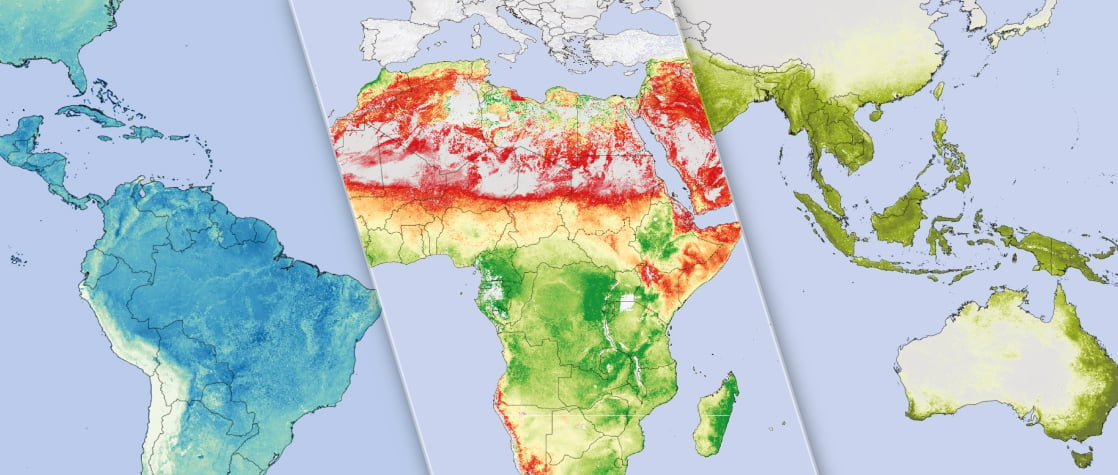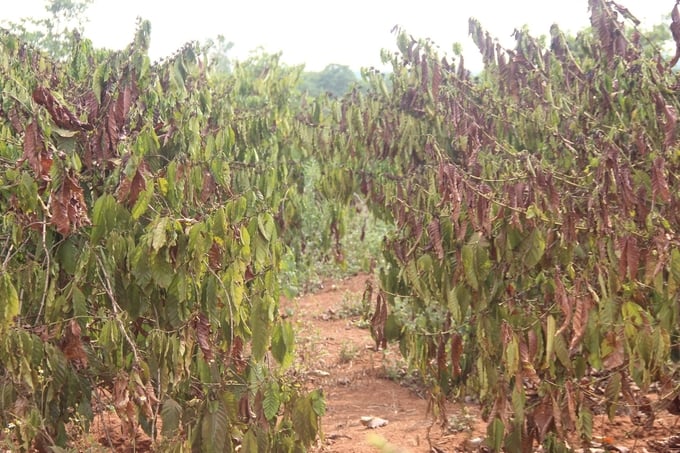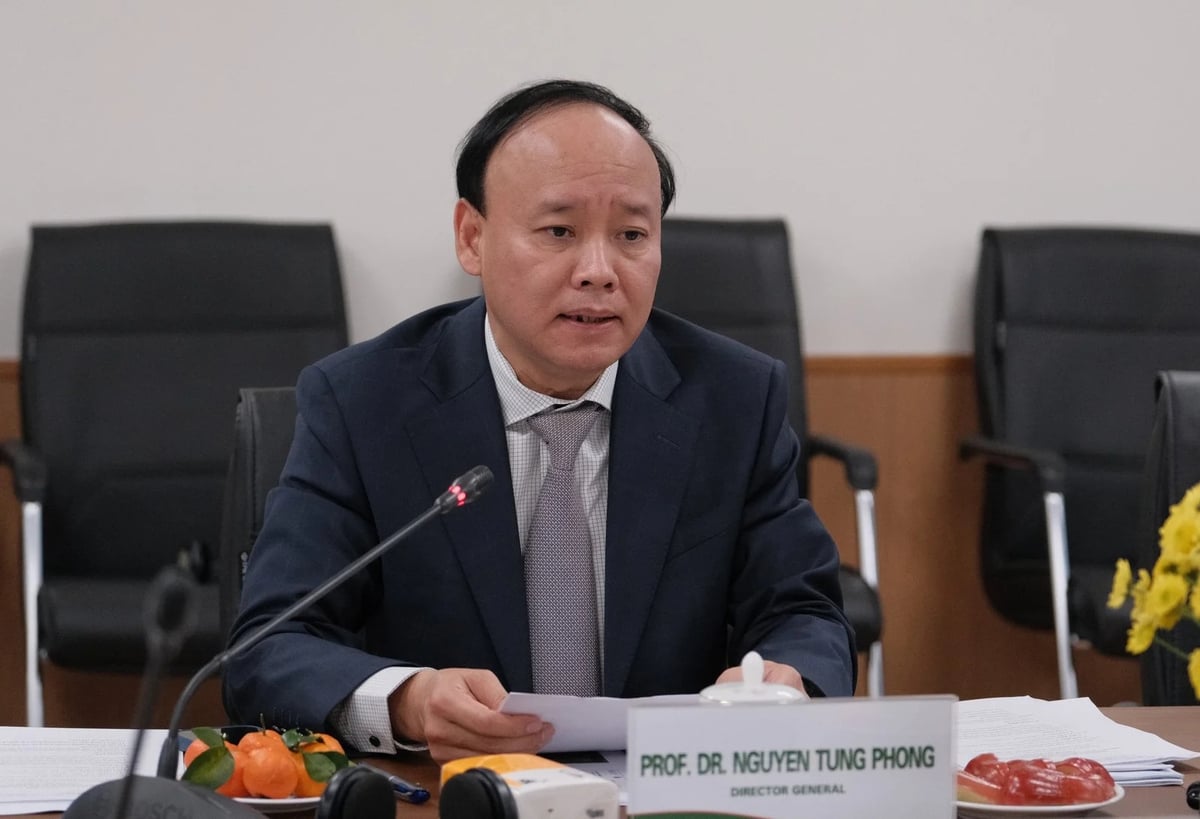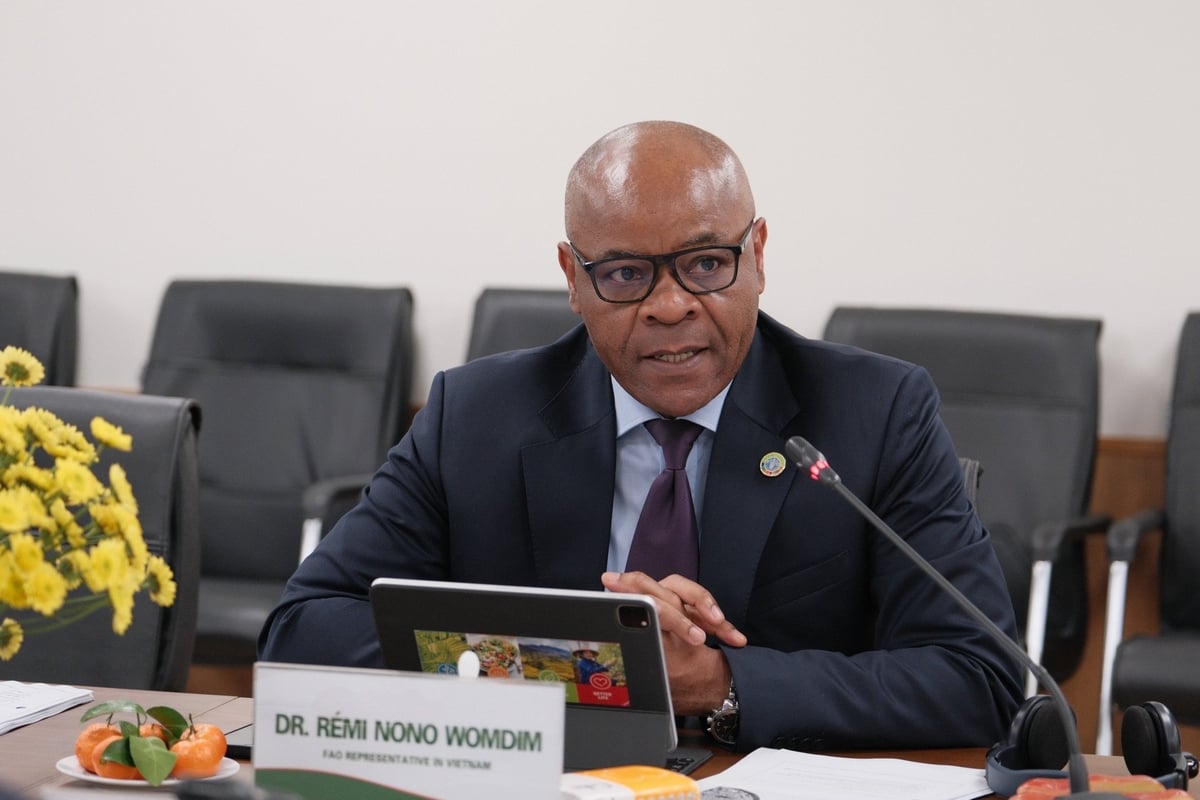December 1, 2025 | 13:02 GMT +7
December 1, 2025 | 13:02 GMT +7
Hotline: 0913.378.918
December 1, 2025 | 13:02 GMT +7
Hotline: 0913.378.918

WaPOR (Water Productivity through Open access of Remotely sensed derived data) is an open spatial data platform on water productivity developed by FAO. Photo: FAO.
On March 26, the Department of Water Works Management and Construction (Ministry of Agriculture and Environment), in coordination with the Food and Agriculture Organization of the United Nations (FAO), held a meeting to launch the project “Drought Impact Assessment in the Central Highlands, Vietnam.” The project will be piloted in 2025 in the two provinces of Dak Lak and Dak Nong, covering an area of approximately 1,500 km².
One of the key outcomes of the project is the development of the WaPOR data (Water Productivity through Open-access of Remotely sensed derived data) for the pilot area. This dataset will enable the assessment and monitoring of drought and water shortages affecting agricultural production using remote sensing technology.
Developed by FAO, WaPOR is an open spatial data platform that allows continuous monitoring of key indicators such as actual evapotranspiration (ET), biomass, soil moisture, and water stress levels, with resolutions ranging from 20m to 300m.
In Vietnam, drought and water shortages are recurring disasters that affect many regions, directly impacting agricultural production and people’s livelihoods. In the Central Highlands, in particular, drought and water scarcity are becoming increasingly severe.
Despite being a key agricultural economic region, only about 26% of agricultural land in the Central Highlands is equipped with irrigation systems, while the remaining 74% relies solely on natural rainfall.
Over the past 25 years, the region has experienced 17 major droughts, causing widespread damages and increasing losses. Rice, coffee, and pepper are the main crops most affected by the lack of irrigation water.

Rain is scarce during the winter-spring crop, and drought often occurs in the Central Highlands. Photo: Tuan Anh.
Prof. Nguyen Tung Phong, Director General of the Department of Water Work Management and Construction, stated that the technical assistance project will help central and local management officials develop methods to monitor and forecast drought and water shortages for agricultural production in a proactive and transparent manner, while laying the groundwork for scaling up the application model nationwide.
“We consider this an important first step for the Ministry of Agriculture and Environment to replicate the project across the country,” Prof. Phong affirmed.
The Central Highlands benefits from diverse microclimates, allowing for the cultivation of various high-value industrial crops. However, this diversity also presents challenges in irrigation construction and management, as the region’s natural conditions are not conducive to developing large-scale irrigation systems for proactive water supply.

Prof. Nguyen Tung Phong, Director General of the Department of Water Work Management and Construction, spoke at the workshop. Photo: Quynh Chi.
Not only that, groundwater resources are currently being degraded, leading to increased production costs and water scarcity for coffee, pepper and other crops at some important times during the production season.
Therefore, having good forecasting and warning information and accurately assessing water demand is an important requirement in ensuring sustainable agricultural production.
Speaking at the workshop, Dr. Remi Nono Womdim, FAO Representative in Vietnam, emphasized: “Water scarcity is no longer a distant concern – it is a present reality, impacting communities, ecosystems, and economies alike.”
Dr. Remi noted that the Central Highlands is a key industrial crop production area in Vietnam, where millions of farmers rely on water resources for their livelihoods. However, agriculture in the region remains largely rain-fed, making it vulnerable to prolonged droughts and reducing community resilience.
FAO studies have shown that water is the foundation of life, the driving force behind economic development and social progress. Among all sectors, agriculture accounts for the largest share of global water use and suffers up to 80% of losses due to water insecurity.

FAO Representative in Vietnam Remi Nono Womdim hopes that the WaPOR tool will support managers in analyzing drought risks and issuing appropriate warnings. Photo: Quynh Chi.
To address global challenges, innovative solutions are needed, using data to analyze risks and provide appropriate warnings.
“WaPOR provides spatial information at different level of resolutions that enables deeper insights into water use productivity, drought severity, and the sustainability of agricultural practices, empowering policymakers, water resource managers, and farmers to make informed decisions that enhance water security and agricultural resilience.” Remi added about the WaPOR dataset.
WaPOR implemented in the Central Highlands region of Viet Nam is the first step that will open up long term research and potential for its application to be expanded across the country in the future. This will promote digital transformation in the management and expansion of irrigation works and integrated water resources management.
FAO’s Water Scarcity Programme (WSP) is a key initiative to support countries in coping with drought and water scarcity. The Asia-Pacific region has been implementing the programme since 2019. Currently, WaPOR has applications operating in 13 countries worldwide.
Translated by Quynh Chi

(VAN) The Institute of Agricultural Sciences for Southern Vietnam (IAS) marked its 100th anniversary in Ho Chi Minh City, celebrating a century of growth as a leading institute contributing significantly to Viet Nam’s agricultural development.

(VAN) An increasing number of livestock farms are using biogas generators to create a source of renewable electricity, helping to save costs and mitigate environmental pollution.

(VAN) Small changes in rice cultivation, from irrigation methods and straw collection to input management, are paving a new way for Vietnam's agriculture in the journey toward emission reduction.

(VAN) With the project of converting biogas into renewable electricity, Australia is both helping pig farms reduce their energy costs by up to 25% and contributing to environmental protection.
![Hue aims for Net Zero: [1] Initial steps from green transportation](https://t.ex-cdn.com/nongnghiepmoitruong.vn/608w/files/huytd/2025/11/28/0853-anh-6-giao-thong-xanh-hue-094717_940-153724.jpg)
(VAN) For sustainable development, Hue City is implementing many solutions to promote green transportation, which is an important initial step on the journey to building a Net Zero Hue.

(VAN) Nghe An Province, one of the localities with the largest forest area in Vietnam, is set to gain significant benefits from the implementation of forest carbon credit payments.

(VAN) Circular agriculture helps Mekong Delta farmers cut greenhouse gas emissions while boosting incomes through efficient reuse of agricultural by-products.